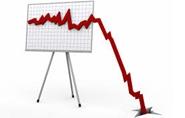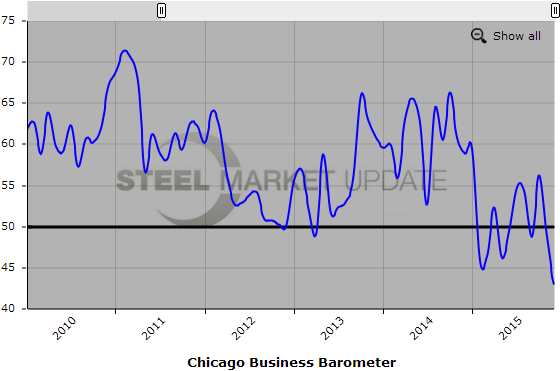Market Data

December 31, 2015
Chicago Business Barometer Takes Unexpected Plunge
Written by Sandy Williams
The Chicago Business Barometer (or Chicago PMI) fell at its fastest rate since 2009, down 5.8 points to 42.9 in December. The drop took analysts by surprise who were projecting a reading in the 48 to 50 range.
MNI Indicators notes that the December reading is 16.5 points below the January 2015 high of 59.4.
Backlogs fell 17.2 points to 29.4, below the neutral point of 50 for the eleventh consecutive month. New orders fell at its fastest pace for year to the lowest level since May 2009. Production entered contraction for the sixth time in 2015. Employment lost its recent gains, falling below neutral to its lowest level since July.
Only supplier deliveries increased in December, with longer lead times likely due to logistic issues rather than demand, said MINI.
When asked to forecast demand in 2016, 55.1 percent of those surveyed expected a better year than 2015 while 30.6 percent expect unchanged conditions.
Chief Economist of MNI Indicators Philip Uglow said, “The steepness of the decline in the Barometer in recent months ends a particularly volatile year, which has seen orders and output move in and out of contraction. It lends weight to the Fed’s gradual approach to tightening, with the flexibility to change direction if needed.”
Bloomberg attributed general sluggish demand in the Chicago area, lower energy prices and a strong US dollar to the unexpected drop in the PMI.
Below is a graph showing the history of the Chicago Business Barometer. You will need to view the graph on our website to use it’s interactive features, you can do so by clicking here. If you need assistance with either logging in or navigating the website, please contact our office at 800-432-3475 or info@SteelMarketUpdate.com.








